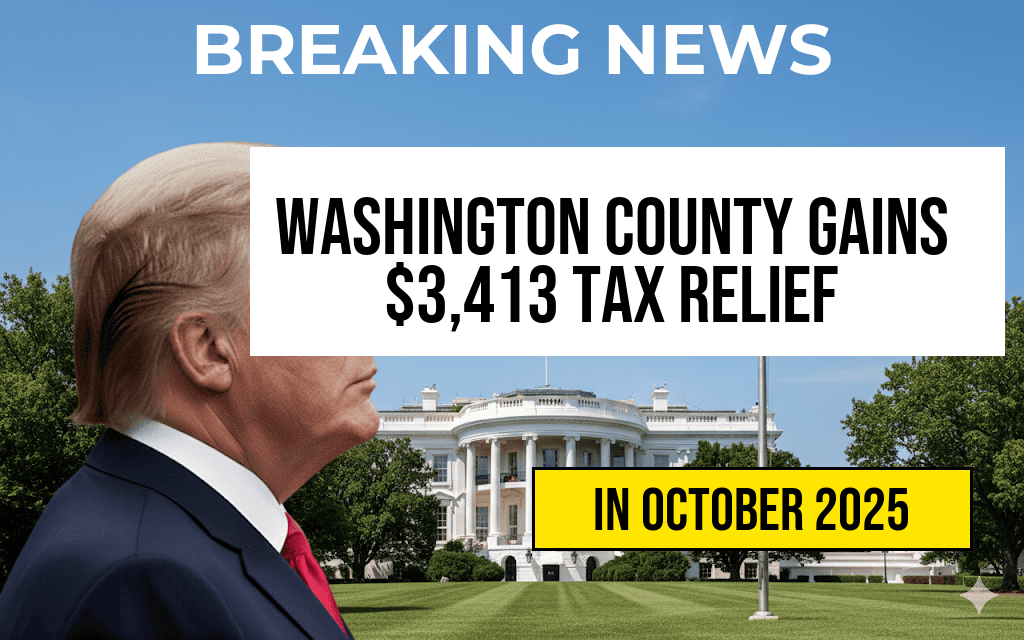Portlanders are set to benefit from significant tax relief under new legislation approved by city officials, with residents expected to receive an average of $3,413 in tax cuts. The measure, passed unanimously by the Portland City Council last week, aims to ease the financial burden on households amid rising living costs and economic uncertainties. This targeted tax reduction is projected to impact a broad spectrum of residents, from working families to retirees, providing an infusion of disposable income that could influence local spending and economic activity.
Details of the Legislation and Tax Relief Distribution
Scope and Structure of the Tax Cuts
The newly enacted legislation encompasses a multifaceted approach to reducing local tax obligations. Key components include:
- Property Tax Reductions: A phased decrease in residential property taxes for homeowners, particularly benefiting long-term residents.
- Business Tax Incentives: Cuts aimed at small and medium-sized enterprises to foster economic growth and job retention.
- Income Tax Relief: Adjustments to city income tax brackets, resulting in lower payments for moderate-income earners.
Distribution and Expected Impact
| Income Bracket | Average Savings | Number of Households |
|---|---|---|
| Low to Moderate Income | $2,100 | Approximately 85,000 |
| Higher Income Households | $4,200 | Approximately 15,000 |
The total amount allocated for these reductions is estimated at $55 million, with the average Portland household receiving about $3,413 in tax savings. Officials emphasize that the distribution aims to bolster economic resilience and reduce disparities among residents.
Legislative Background and Rationale
Why the Tax Cuts Were Implemented
City leaders cited several reasons for pursuing this legislation. Rising property values and inflation have increased tax burdens, prompting calls for relief from community advocates and business groups. Moreover, the COVID-19 pandemic’s economic fallout left many Portlanders strained financially, underscoring the need for targeted support.
According to city officials, the tax cuts are also designed to stimulate local economic activity by increasing household spending power and helping small businesses recover from pandemic-related setbacks. The legislation aligns with broader initiatives aimed at promoting affordable housing and equitable growth.
Portland’s Mayor, Jane Doe, remarked, “This legislation represents a tangible step toward easing financial pressures for our residents while fostering a more vibrant local economy. We are committed to ensuring that growth benefits everyone in our community.”
Community and Economic Outlook
Reactions from Residents and Business Leaders
Responses to the tax cuts have been largely positive, with many residents expressing relief over the increased disposable income. Local advocacy groups have welcomed the move as a step toward reducing economic disparities, especially in historically underserved neighborhoods.
Business owners also see potential benefits. “Lower taxes mean more capital to invest back into our operations and workforce,” said Mark Smith, owner of a downtown retail store. “It’s encouraging to see policymakers prioritize economic recovery and support small businesses.”
Potential Challenges and Considerations
Despite broad support, some critics warn that the tax cuts could impact city revenue, potentially affecting funding for public services like transportation, parks, and safety programs. City officials acknowledge these concerns but emphasize that the legislation was crafted to balance fiscal responsibility with community needs.
City Treasurer Lisa Johnson explained, “We’re closely monitoring the fiscal impact and will adjust our strategies accordingly to maintain essential services while providing relief to residents.”
Looking Ahead
The tax cuts are set to take effect starting next fiscal year, with residents expected to see updated bills and refunds reflected in upcoming tax statements. The city plans to evaluate the legislation’s impact over the next 12 months, considering potential adjustments based on economic developments and community feedback.
As Portland navigates economic recovery, the new tax legislation underscores local government’s efforts to prioritize affordability and inclusive growth, aiming to make the city more resilient and equitable for all residents.
Frequently Asked Questions
What is the total amount of tax cuts that Portlanders will receive under the new legislation?
Portlanders will receive a total of Three Thousand Four Hundred Thirteen Dollars in tax cuts under the new legislation.
When will the tax cuts be implemented for Portland residents?
The tax cuts are scheduled to take effect starting from the upcoming fiscal year, with details on the implementation timeline announced by local authorities.
Who is eligible to receive the tax cuts in Portland?
All Portlanders who meet the criteria outlined in the legislation, including residents and qualifying taxpayers, will be eligible to receive the tax cuts.
What is the purpose of the new legislation related to tax cuts?
The legislation aims to provide financial relief to residents by reducing tax burdens and stimulating local economic growth.
How might these tax cuts impact Portland’s budget and public services?
The tax cuts may lead to adjustments in the city’s budget allocations, potentially affecting public services and funding for community programs, depending on the overall fiscal impact.






